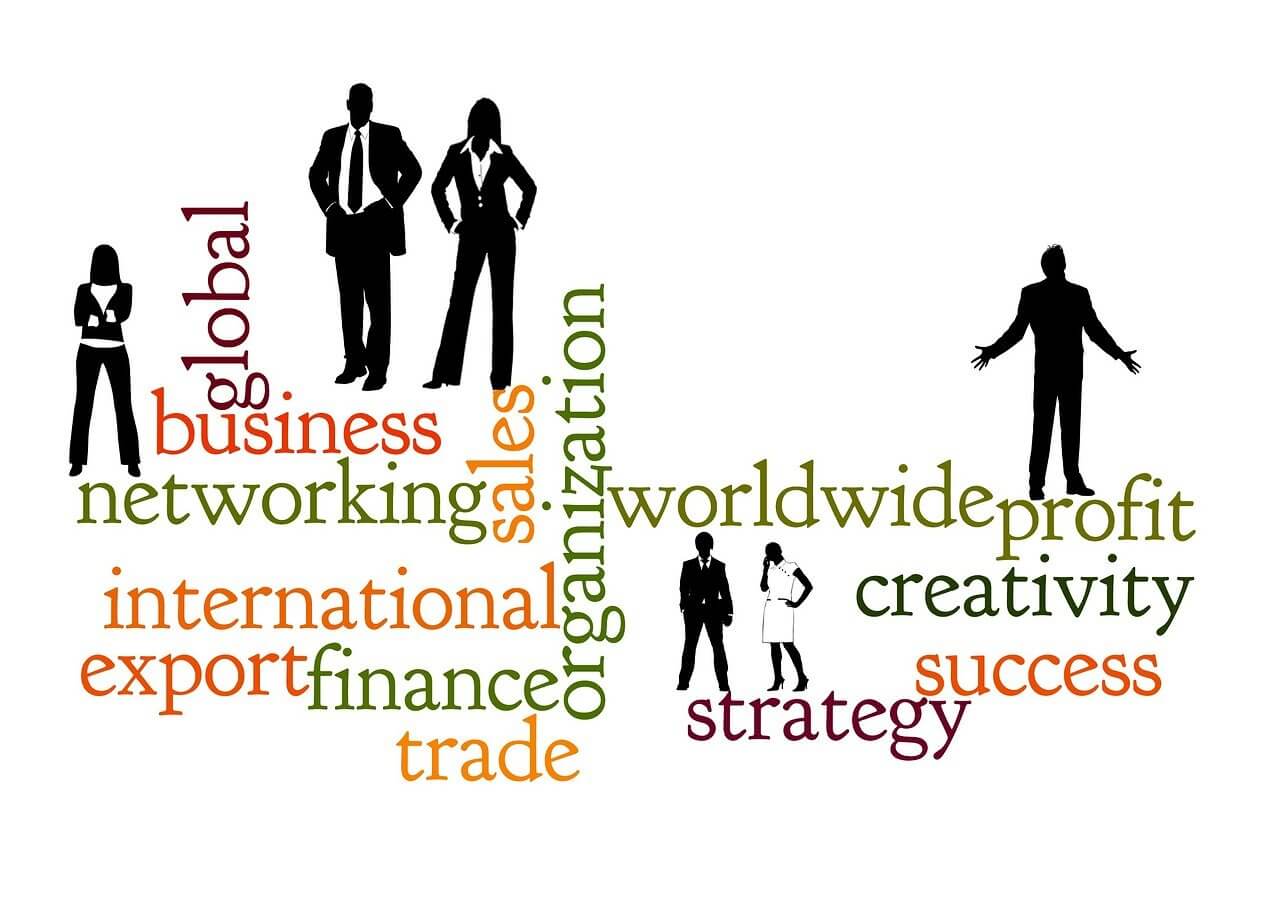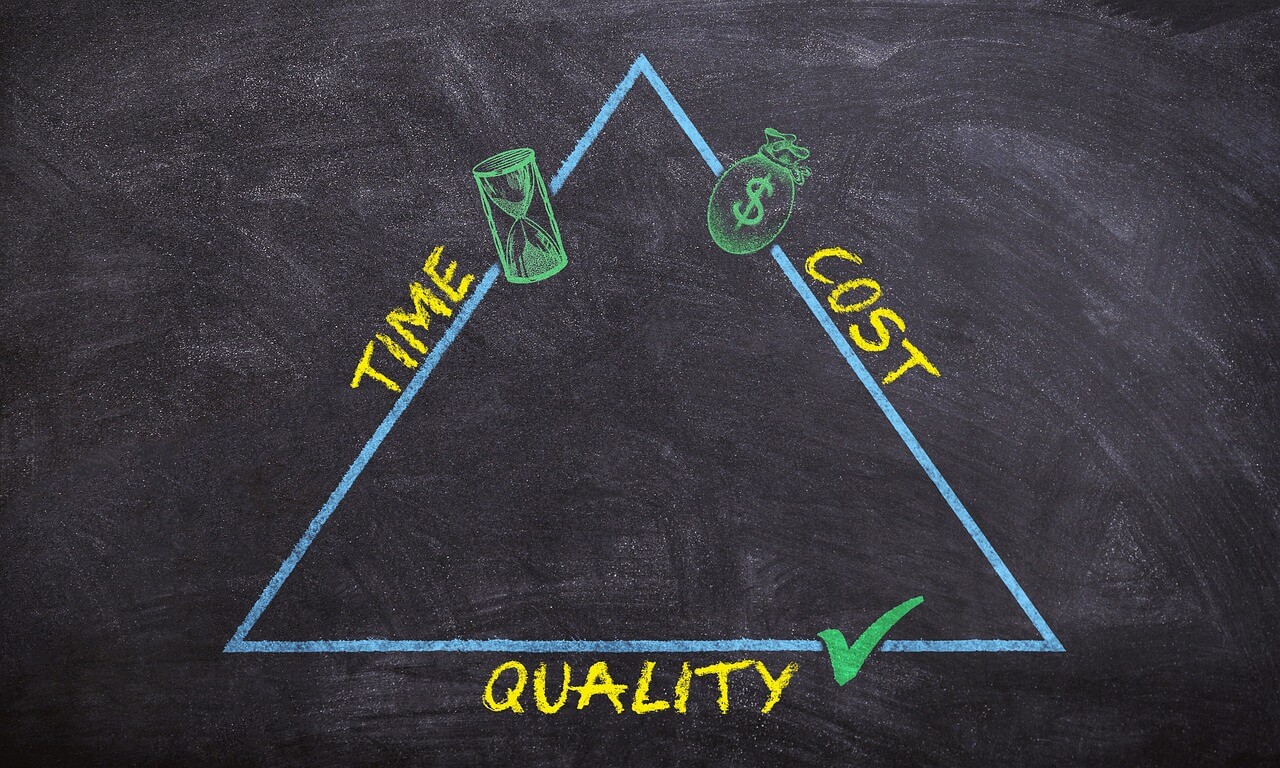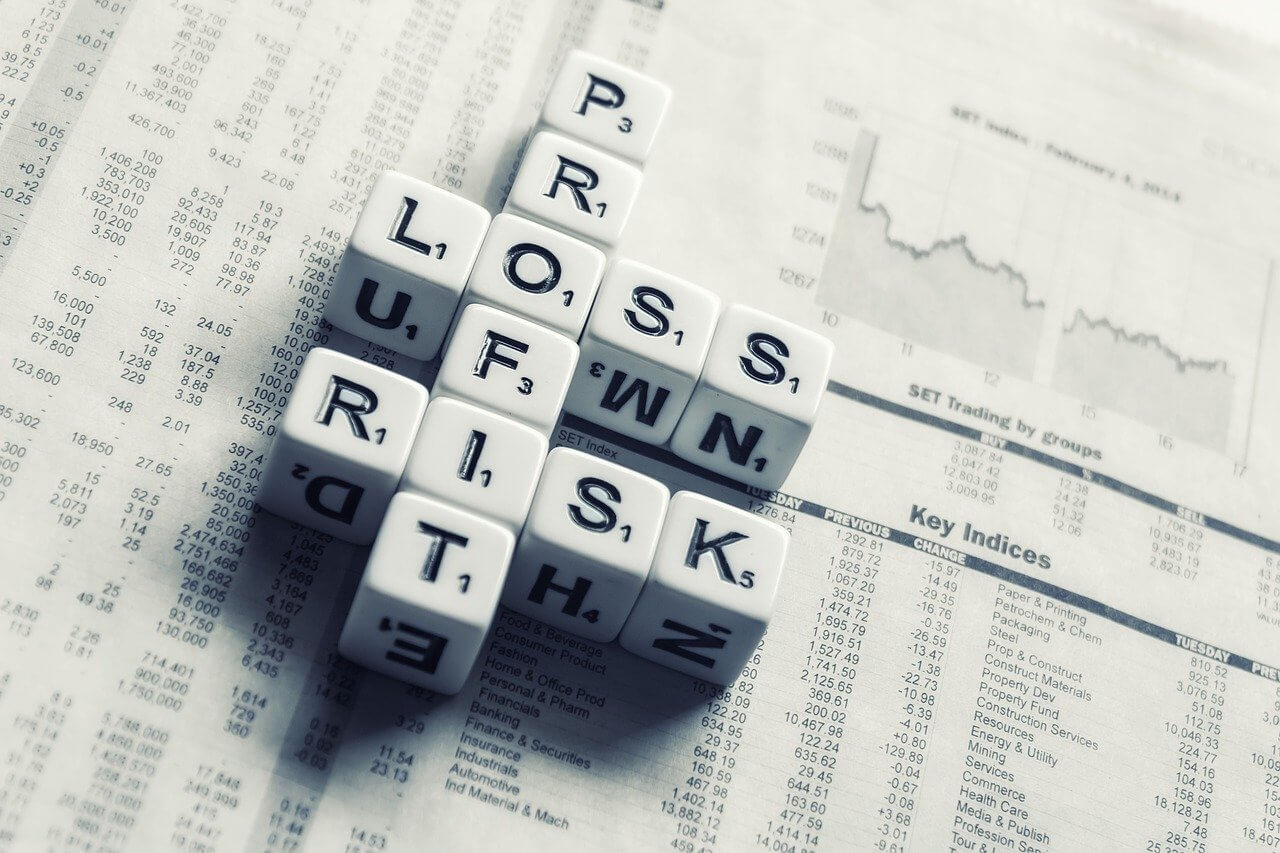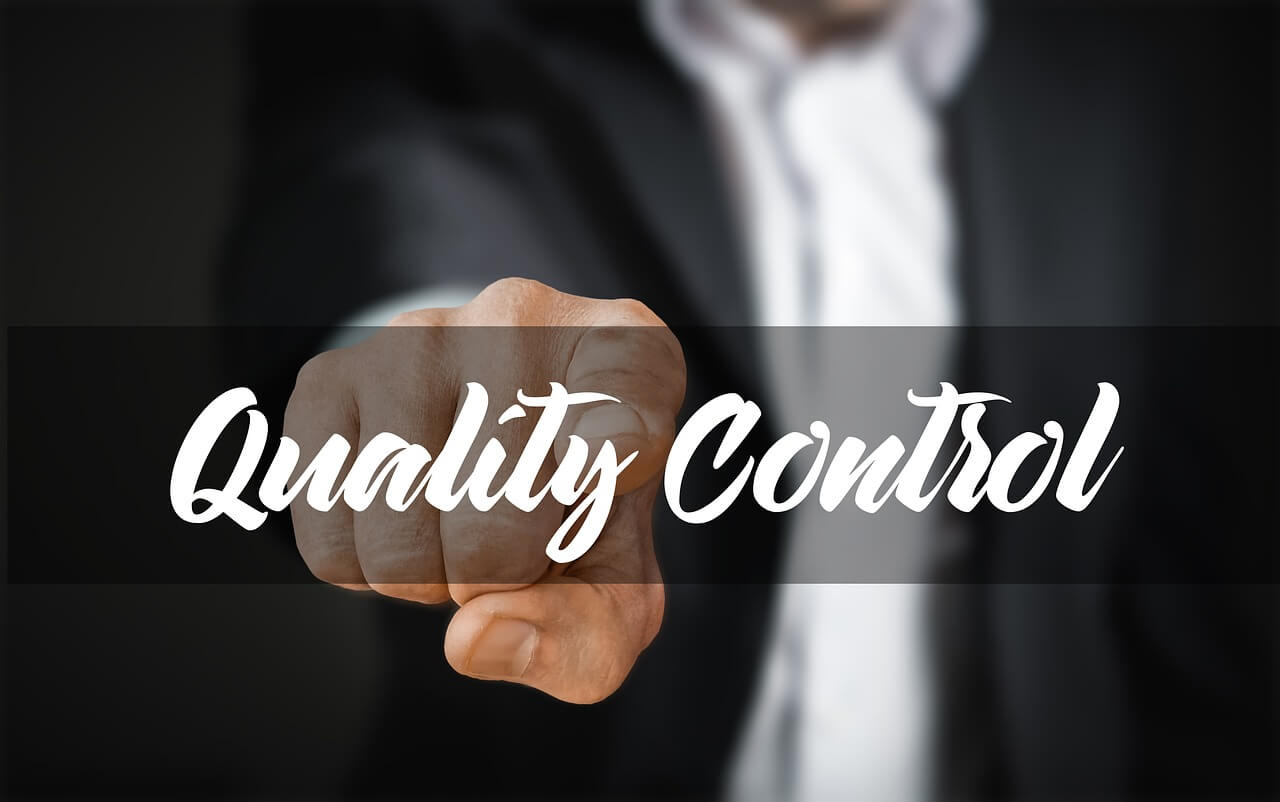Worldwide trade has been the center of the global economy for ages. It is one of the most profitable businesses due to its unique and massive value proposition. Filling the gap between international demand and supply promises great profit margins.
Thanks to technological advancements, moving goods from one country to another has been becoming easier. This makes international trade accessible for small and large businesses.
However, starting a worldwide trade business requires careful planning and execution. The most important step is to source products at competitive prices and sell them at high-profit margins. This article will discuss all the major steps and tips on sourcing products for worldwide trade.
Let’s start.
Basics of Worldwide Trade

Worldwide trade involves sourcing items from one part of the world and supplying them to the other part. You would need to have a complete understanding of source and target markets. You should clearly know what products you will sell and where you will source them.
Having a clear idea of the 5Ws of worldwide trade gives you a better understanding of this business.
The 5 Ws of Worldwide Trade

Here are the 5 Ws of worldwide trade business. Understanding every factor ensures you have what it takes to start and execute this business successfully. Let’s briefly discuss each of them:
What
Be certain about what you are going to trade. You can trade raw materials and finished goods. In addition to the physical items, you can also trade soft services like skilled expertise from one place to another. However, traditional trading involves trading tangible items. Finalize the products you will trade before starting this business. Ideally, you must have a good understanding or natural interest in these products. This will help you understand the dynamics of those items.
Why
You must know why you are going to trade those items. There can be several reasons for trading those items. The most common reason may be the gap in demand and supply of those products. Other reasons may include the required quality or quantity of those goods. High profit margins for trading items may also be one of the most probable reasons for starting a worldwide trade business. You just need to define the motivating or beneficial factors behind a trading business.
Who
The who factor is also very important in a trading business. You should clearly identify the parties involved in the reading business. Typical parties engaged in a worldwide trade business will include the list of buyers and suppliers. You may have more than one buyer or supplier. So, having this data will keep your business on track. There may be other parties involved as well. Try getting maximum information about every major person or company related to your trading business. Missing information on any of the parties may result in the loss of your business.
When
You should also know when your international trade will take place. Depending on the dynamics of your business, you can define the range of timelines or the exact dates when your trade will occur. Dates of a trading activity play a pivotal role in worldwide trade. In a few cases, your business may suffer significantly if you deviate from those dates. Suppose you want to ship items from China to the US for the Halloween season, and your shipment arrives after Halloween. As a consequence, you would have to hold that stock for the whole year till the next Halloween.
Where
You should know the important places in your trade. For example, if you import products from China, you should know the market locations like Yiwu and Guangzhou from where you will source your products. A clear idea of the source markets or places will ensure safe trade transactions. Similarly, you should also be aware of your target markets and locations where you will store it selling those imported items. You must also know the other important places involved in the trading activity, including ports, warehouses, or fulfillment centers.
The “How” factor in worldwide trade
In addition to the 5Ws of the worldwide trade business, there is another important factor known as the “How” factor. As the name suggests, the How factor would explain how the whole import and export process will occur. You should be aware of every step involved in the trading process.
A detailed import and export process may start right from the manufacturing facility. Your business might be required to state how your products are manufactured. Have a clear idea about how your goods will move from the manufacturing facility to the required port. You should also be aware of the shipment methods and processes involved from start to finish.
Things to Do Before Sourcing Products
Certain steps are involved before you move on to sourcing products for international trade. You will have to make a perfect balance between those requirements to ensure success.

Let’s discuss what you need to do before sourcing products:
Market Analysis
First of all, carry out a detailed market analysis. This is the target market where you intend to sell your products. You need to have complete information about the dynamics of your target market. You have to be sure what products are in high demand that have lower than the required supplies. It would be better if you could identify the target customer as well.
Product Research
Your market knowledge would put you in a better position to decide which products you want to source. Try creating products in high and stable demand in your target market. You may also choose a different or better product that may replace the products currently available in your target market.
Profit Calculations
Calculating the cost and profit margins is absolutely necessary for a successful business plan. Try choosing products that have the potential for high-profit margins. For that, you require visibility on the costs and pricing of the required products. You may easily get price data from the target market. You can search for the cost of those products from online sourcing websites like Alibaba.
Unique Value Proposition
A good trading business is based on a unique value proposition. If you start importing and selling the products already available in the market, you may have yet to achieve the desired results. Try making your business as unique as possible so that the market and customers can rely on your products. The value proposition may be in terms of price or product exclusivity.
Steps to Source Products for Worldwide Trade

A worldwide trade business involves a series of steps. All of these steps are interlinked. You will have to take every step seriously because the successful execution of the next step will depend on how well you executed the previous one.
Here are the typical steps involved in sourcing products from worldwide trade:
Step 1. Supplier Research
Suppliers are the backbone of every trade business. You may either manufacture your goods or source them from reliable suppliers. In most cases, traders source products from third-party suppliers. For example, you can have suppliers in China to source products at cheap costs and sell them in the US or European markets at higher prices.
You can research suppliers from online marketplaces. Websites like Alibaba, DHgate, and HKTDC are excellent platforms to search for your suppliers. You can also explore options like online supplier directories and trade shows. However, finding and selecting the best suppliers may take a lot of time and energy. If you want to save time, you can always go for a reliable product-sourcing agent.
Step 2. Supplier Selection
After you have an extensive database of suppliers from your niche, the next step is to select the best suppliers to procure the required items. You may choose one main supplier for your products, but you should also have some suppliers in your pipeline. You may need them if your main supplier cannot fulfill your demands.
There are several rules of thumb when selecting your suppliers. You may check your supplier’s capability to fulfill your demand. You can check for the supplier’s background, reputation, manufacturing facility, and other aspects to decide if the supplier matches your business.
Step 3. Discussion and Negotiation
Choosing a supplier for your business right away is not always the best strategy. Try negotiating on different terms with your suppliers. Compare the prices and additional services you require from your supplier. Asking for the supplier’s previous experience in similar transactions is also a good idea.
Your supplier must be efficient and experienced in international trade business. Professional and friendly negotiations with your supplier are always advised before entering into a legal agreement. In addition to price and services, you must also check if your supplier is proficient in communicating in your language. Otherwise, you may experience difficulties when you want to discuss your product ideas with your supplier.
Step 4. Supplier Finalization
Based on your supplier research analysis and negotiations, you will have to finalize a supplier. This supplier should meet all or most of your business demands. By this step, you would have finalized your pricing and other teams and conditions with your supplier.
Draft a contract that has all the details and share it with your supplier. This will confirm that you and your suppliers are on the same page. An ideal draft contains all the important information, including product specifications, required quantity, delivery schedules, and payment terms.
Step 5. Contract & Incoterms
After finalizing your supplier, you can go ahead and sign your formal contract. This may be the same draft that you shared earlier with your supplier for review. The contract can be safely signed after both parties agree on that draft.
You have to be careful while selecting your shipping Incoterms. These Incoterms decide the scope of business and responsibilities between you and your supplier. Depending on your international trade experience, you may consider Incoterms like Delivery Duty Paid (DDP) and Free on Board (FOB).
Step 6. Quality Assurance
Quality is the key to every business. As you will be importing products from another country, you need to be sure that the required products meet your quality standards. If you are importing large quantities, you must order samples of the required products first. This quality assurance may involve an inspection of the manufacturing facility and ensuring the best packaging to protect the items.
Based on the sample evaluation, you can approve or ask for product modifications. Ideally, you must also ensure that the goods are properly inspected for quality and quantity before shipment so that you don’t have to face any surprises when you receive your items. This is one of the most important steps because any changes required in the delivered items would involve a hectic, lengthy, and expensive return process.
Step 7. Import Formalities
Import and export is a sophisticated process and requires compliance with international standards. Try to get the maximum information about the import and export regulations of the target and source countries. Discuss these formalities with your supplier and ask what certifications and documents your supplier will provide. Preparing these documents for customs clearance and regulatory approval is a must-have for a trading business.
You may need documents like a bill of lading, invoice of the products, packing list, and certificate of origin. Make sure that your supplier provides all of these documents. Depending upon the country of import, you may also need a certificate of conformance for your products. Missing out on any of these documents may land your business in legal trouble.
Step 8. Risk Mitigation and Contingency Plan
Import and export business is not free of risks. Therefore, you need to be prepared to handle untoward circumstances. You have to identify all the risks. These risks may be relevant to supply chain variations, logistics uncertainty, and quality issues.
You must have contingency plans to mitigate the risks so that these risks pose a minimal threat to your business. The contingency plan to mitigate risks may include arranging additional suppliers in your backup. You should also arrange for flexible container shipping options like LCL delivery. Hiring a professional product sourcing company helps you avoid the above-mentioned risks.

Factors Affecting a Worldwide Trade Business
A good trader knows the possible reasons that may potentially affect your business. Having information about the risks involved helps you plan ahead to avoid potential losses.
Let’s discuss the probable factors that may affect your business in worldwide trade.
Currency Fluctuations
Worldwide trade involves payment in different currencies and requires you to be vigilant about the currency exchange rates. A slight variation in currency exchange value may significantly impact the overall payment value. Keep this factor in mind while doing the profit calculations for your business.
Payment Methods
You have to arrange payment methods that your supplier accepts. For example, if you only prefer PayPal for your international payments, you need to confirm with your supplier if he accepts payments via PayPal. International suppliers are usually flexible in their accepted payment methods. However, you need to be sure that you have the right payment methods for smooth payments.
Geopolitical Circumstances
Cross-border trade depends on the relationship between two countries or governments. The geopolitical circumstances may change overnight. If you are importing products from China to the US, you have to be certain about a fair chance of a good relationship between these countries in the near future. If tensions arise between two countries, mutual trade will also suffer accordingly.
Variations in Trade Taxes and Policies

You have to be vigilant about the countries’ trade taxes and policies involving your worldwide trade business. Trade policies are subject to change almost every year. Governments keep imposing taxes on imported items. These import duties and tariffs play an important role in setting the prices of your products. Governments may also ban certain import and export items. Therefore, you need to keep this factor in mind while making long-term decisions for your business.
Competitive Landscape
You will likely not be the only importer in your niche. You will always have competition. Therefore, you need to monitor your competitors’ activities closely. If your competitors offer the same products at lower prices, that will call for a change in your strategies too. Moreover, your competitors may also launch better or more advanced products that may make your products obsolete. Incorporating this factor and planning in advance will ensure sustainability in your business.
Trade Season
Be careful if you are importing seasonal items to sell in your market. A slight variation in the delivery schedule may affect your whole business year. For example, if you are importing products for the Halloween season, your products must reach the destination port well before September. There will be no use if your Halloween products arrive after the Halloween celebrations.
Market Entry Timing
Some products have sensitive market entry timings and require you to act on time to introduce those products in the market within that specific timeframe. For example, the world got crazy for fidget spinners a few years back. But that product had a limited life. Only those traders who initially imported that product benefited from those products. So, you must import a product before it gets saturated.
How can a Sourcing Agent Help in Worldwide Trade?
A product sourcing agent is an individual or company specializing in arranging products for an importer. These companies are experts in finding products from the best suppliers.
Here are some of the ways a sourcing company can help you in your worldwide trade business:
Identify the Best Suppliers
Sourcing agents have a large pool of suppliers. They know every major supplier in each product category. When you contact a sourcing agent and share your requirements, you will get a lot of options to choose from. Agents will present you with options, including direct manufacturers of those items and wholesalers. You can easily decide which supplier to select for a smooth supply chain.

Better Negotiations
Always be fully aware of the points to negotiate with your supplier. However, sourcing agents are experts in this activity. They know how to negotiate with the local supplier because they keep doing it for their other clients. Manufacturers also feel more comfortable negotiating with the local agents as they keep getting business for them.
Better Communication
Sourcing agents are experts in speaking the local language. Hence, they easily communicate your messages to the suppliers. As an international importer, you may need to be better versed with the local language of the suppliers. Therefore, it is likely that you will need help communicating directly with the suppliers. Good communication is vital to ensure that both parties are on the same page. Failing to communicate correctly with your supplier may result in deviations from the required specifications and quality standards.
Quality and Quantity Assurance
Sourcing agents can ensure the quality right from the manufacturing facility to the point of shipment. They will take guidelines from you and ensure that products meet the required quality and quantity standards. You can also ask agents to conduct factory audits and inspect the finished goods before they are eligible to be shipped. If you want, you can also ask the sourcing company to perform third-party inspections. They can also share the inspection certificates with you.

Shipping Solutions
Depending on the type of worldwide trade business, you may have different shipping requirements. You may want to have cheap or expedited shipping solutions. Sourcing agents are experienced in arranging different types of shipping solutions. You can ask them to share the shipping options. You can ask the agents to confirm the preferred shipping methods for your products based on your preferences.
Prevention of Fraud and Scam
Scams and frauds are common in sourcing products from other countries. That’s because you don’t have a physical presence in the source country. You can’t monitor the progress and actually check the products until they reach your warehouse. Sourcing agents are your eyes and ears in the source country. They work on your behalf to ensure overall compliance with your requirements. They guarantee the security of your payments in every possible way.
Customized Solutions
Sometimes, wholesalers and manufacturers may not offer customized solutions. You may require private labeling options with your company’s logo on products. Sourcing agents know these requirements. They know which manufacturers accommodate the customized requests. These suppliers may ask for additional charges per product, but you will get the required products as per your guidelines.
Overall Cost Savings
Working with a professional sourcing agent reduces your overall fatigue and the cost of your business. Dealing directly with the suppliers may be more cost-effective. But that’s not true in most cases. After incorporating the costs saved in terms of saving time and reducing risks, you will come to know that hiring a product sourcing agent is way more cost-effective than doing everything independently.

The core purpose of a sourcing agent is to help you with the whole sourcing process so that you don’t have to get involved in each step. Importers hire local sourcing agents to streamline their sourcing solutions and to get the ultimate peace of mind. This helps them focus on more critical business tasks, like sales, marketing, and customer services. But you must know how to work with a product sourcing agent for the best results.
FAQs about Sourcing Products for Worldwide Trade
Let’s read the answers to the most frequently asked questions regarding product sourcing for worldwide trade. These answers will address your existing and potential inquiries.
Why Is Product Sourcing Important for Worldwide Trade?
Worldwide trade depends on the arrangement of the products from one country and selling them in another. That’s why sourcing the right products is key to worldwide trade. Without the right products, your business may not turn out to be profitable or sustainable.
What Are the Common Challenges in Sourcing Products for Worldwide Trade?
Considering worldwide traders’ experiences, the common challenges include language barriers, logistical failures, and cost-to-price ratios. Other challenges include the variation in the quality of the products and issues related to regulatory compliance and documentation.
How Can You Optimize Your Sourcing Strategy for Worldwide Trade?
Try maintaining a database of the right suppliers and sourcing agents as a backup. At the same time, you should also maintain and improve the relationship with your existing supplies to optimize your supply chain management. You should also keep checking your niche’s latest trends and requirements and update your business accordingly.
Final Words
Sourcing products for worldwide trade is the primary step in building a trading empire. No matter how simple it may sound, you must execute each step with ultimate care and vigilance. Every step in the sourcing process is interlined. So, ignoring one step may significantly impact your overall business.
In this article, we have discussed all the important steps required to source products for your trading business. We have also discussed the risks involved in this business and ideas about mitigating those risks. You can turn to this article whenever you want to source a product from another country to ensure you are always on track.
If you want professional product sourcing services from China, we are always there to help. Just fill out our simple and free form to get the best sourcing services at affordable prices. Our sourcing experts have decades of experience and can guide you through every step to save your precious time and costs.
Meta Description:
Get a detailed overview of the international sourcing process in this article to avoid making mistakes when sourcing products for worldwide trade.

